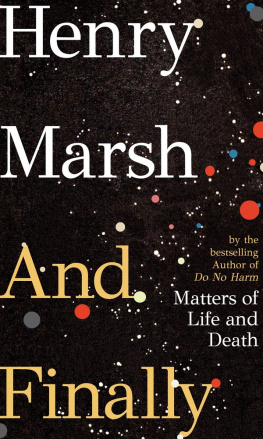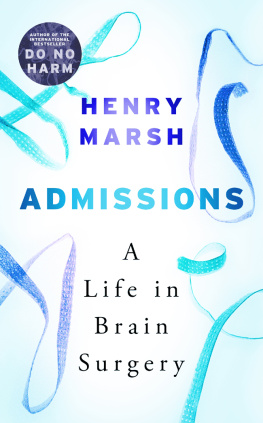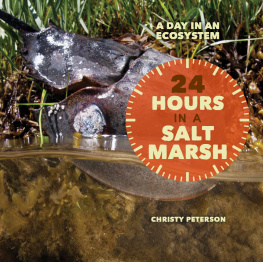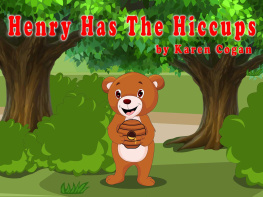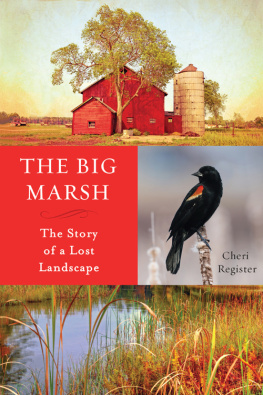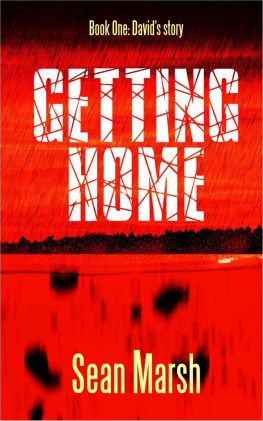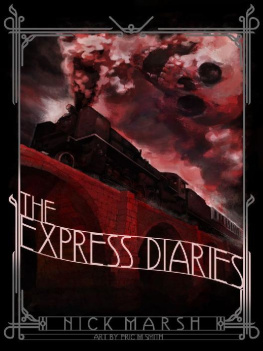Henry Marsh - And Finally
Here you can read online Henry Marsh - And Finally full text of the book (entire story) in english for free. Download pdf and epub, get meaning, cover and reviews about this ebook. year: 2022, publisher: Penguin Random House UK, genre: Religion. Description of the work, (preface) as well as reviews are available. Best literature library LitArk.com created for fans of good reading and offers a wide selection of genres:
Romance novel
Science fiction
Adventure
Detective
Science
History
Home and family
Prose
Art
Politics
Computer
Non-fiction
Religion
Business
Children
Humor
Choose a favorite category and find really read worthwhile books. Enjoy immersion in the world of imagination, feel the emotions of the characters or learn something new for yourself, make an fascinating discovery.
- Book:And Finally
- Author:
- Publisher:Penguin Random House UK
- Genre:
- Year:2022
- Rating:5 / 5
- Favourites:Add to favourites
- Your mark:
- 100
- 1
- 2
- 3
- 4
- 5
And Finally: summary, description and annotation
We offer to read an annotation, description, summary or preface (depends on what the author of the book "And Finally" wrote himself). If you haven't found the necessary information about the book — write in the comments, we will try to find it.
And Finally — read online for free the complete book (whole text) full work
Below is the text of the book, divided by pages. System saving the place of the last page read, allows you to conveniently read the book "And Finally" online for free, without having to search again every time where you left off. Put a bookmark, and you can go to the page where you finished reading at any time.
Font size:
Interval:
Bookmark:


Henry Marsh is a retired neurosurgeon and the bestselling author of Do No Harm and Admissions. Both books were Sunday Times No. 1 bestsellers, and have been translated into over thirty languages. Do No Harm was awarded the South Bank Sky Arts Award and the PEN Ackerley Prize, and was shortlisted for the Costa Biography Award, Duff Cooper Prize, Wellcome Book Prize and Guardian First Book Award. Marsh was made CBE is 2010. Since retiring from full-time work in the NHS in 2015, he continued to operate and lecture abroad. He is married to the anthropologist Kate Fox, and lives in London and Oxford.
Do No Harm: Stories of Life,
Death and Brain Surgery
Admissions: A Life in Brain Surgery
For my granddaughters, Iris, Rosalind and Lizzie
Two things fill the mind with ever new and increasing admiration and awe, the more often and steadily we reflect on them: the starry heavens above me and the moral law within me.
Immanuel Kant, Critique of Practical Reason
We are such stuff as dreams are made on, and our little lives are rounded with a sleep.
William Shakespeare, The Tempest
I worked as a neurosurgeon for over forty years. I lived in a world filled with fear and suffering, death and cancer. Like all doctors, I had to find a balance between compassion and detachment. This was sometimes very difficult. But rarely, if ever, did I think about what it would be like when what I witnessed at work every day happened to me. This book is the story of how I became a patient.
I came to medicine by a roundabout route, which had included studying, and abandoning, philosophy. I knew only the most basic science by the time that I became a doctor. Although I am deeply fascinated by science, I am not a scientist. Most neurosurgeons are not neuroscientists to claim that they all are would be like saying that all plumbers are metallurgists. But as I approach the end of my life, I find myself besieged by philosophical and scientific questions that suddenly seem very important questions which in the past I had either taken for granted or ignored. This book is also the story of my attempts to understand some of these questions, without necessarily finding answers.
It seemed a bit of a joke at the time that I should have my own brain scanned. I should have known better. I had always advised patients and friends to avoid having brain scans unless they had significant problems. You might not like what you see, I told them.
I had volunteered to take part in a study of brain scans in healthy people. I was curious to see my own brain, if only in the greyscale pixels of an MRI scan. I had spent much of my life looking at brain scans or living brains when operating, but the awe I felt as a medical student when seeing brain surgery for the first time had fallen away quite quickly once I started training as a neurosurgeon. Besides, when you are operating you do not want to distract yourself with philosophical thoughts about the profound mystery of how the physical matter of our brains generates thought and feeling, and the puzzle of how this is both conscious and unconscious. Nor do you want to be distracted by thinking about the family of the patient under your knife, waiting, desperate with anxiety, somewhere in the world outside the theatre. You need to separate yourself from these thoughts and feelings, although they are never far away. All that matters is the operating and the self-belief it requires. You live very intensely when you operate.
Perhaps I thought that seeing my own brain would confirm the fascination with neuroscience that had led me to become a neurosurgeon in the first place, and that it would fill me with a feeling of the sublime. But it was vanity. I had blithely assumed that the scan would show that I was one of the small number of older people whose brains show little sign of ageing. I can now see that although I had retired, I was still thinking like a doctor that diseases only happened to patients, and not to doctors, that I was still quite clever and had a good memory with perfect balance and co-ordination. I ran many miles every week and lifted weights and did manly press-ups. But when I eventually looked at my brain scan, all this effort looked like King Canute trying to stop the rising tide of the sea.
Several months passed before I could bring myself to open the CD which had been sent to me after the scan. I had found plenty of excuses to put it off downloading the data from the CD to my computer might be complicated, I had many lecture tours abroad, things to make in my workshop, days to spend with my grandchildren. In retrospect, I can see that I was apprehensive about what the scan might show, but I had managed to repress this fear, keeping it out of conscious thought.
It took only a few minutes to download the files. As I looked at the images on my computers monitor, one by one, just as I used to look at my patients scans, slice by slice, working up from the brain stem to the cerebral hemispheres, I was overwhelmed by a feeling of complete helplessness and despair. I thought of folk stories about people who had premonitions of attending their own funeral. I was looking at ageing in action, in black and white MRI pixels, death and dissolution foretold, and already partly achieved. My seventy-year-old brain was shrunken and withered, a worn and sad version of what it once must have been. There were also ominous white spots in the white matter, signs of ischaemic damage, small-vessel disease, known in the trade as white-matter hyperintensities there are various names for them. They looked like some evil pox. Not to put too fine a point to it, my brain is starting to rot. I am starting to rot. It is the writing on the wall, a deadline.
I have always felt fear as well as awe when looking at the stars at night, although the poor eyesight that comes with age now makes them increasingly difficult to see. Their cold and perfect light, their incomprehensible number and remoteness, the near eternity of their lives are in such contrast to the brevity of mine. Looking at my brain scan brought the same feeling. The urge to avert my eyes was very great. I forced myself to work through the scans images, one by one, and have never looked at them again. It is just too frightening.
There is an extensive medical literature about the white-matter changes on my brain scan, the white matter being the billions of axons electrical wires that connect the grey matter, the actual nerve cells. If we reach eighty years old, most of us will have these changes. Their presence is associated with an increased risk of stroke although it is unclear whether they predict dementia or not. If we make it to eighty, we have a one in six risk of developing dementia, and the risk gets greater if we live longer. It is true that a so-called healthy lifestyle reduces the risk of dementia to a certain extent (some researchers suggest 30 per cent) but however carefully we live, we cannot escape the effects of ageing. We can only delay them if we are lucky. Long life is not necessarily a good thing. Perhaps we should not seek it too desperately.
Next pageFont size:
Interval:
Bookmark:
Similar books «And Finally»
Look at similar books to And Finally. We have selected literature similar in name and meaning in the hope of providing readers with more options to find new, interesting, not yet read works.
Discussion, reviews of the book And Finally and just readers' own opinions. Leave your comments, write what you think about the work, its meaning or the main characters. Specify what exactly you liked and what you didn't like, and why you think so.

